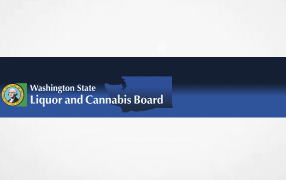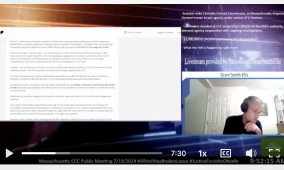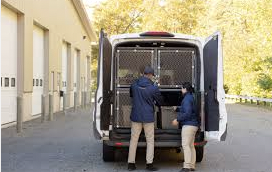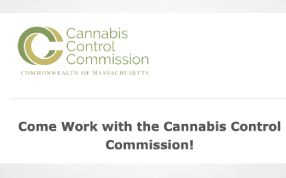Robert Carp is a former High Tech Entrepreneur of The Year, and has been involved in the cannabis business for the past ten years. Carp has authored seven books on the cannabis business, including:
- The Marijuana Business Operations Guide
- IRS 280E and Its Application to the Cannabis Industry
- The Marijuana Business Licensing Guide
- Carp’s Legal Forms for The Cannabis Business
- Standard Operating Procedures for Dispensaries
- Standard Operating Procedures for Processors
- Standard Operating Procedures for Cultivators
Considered a cannabis industry tax expert, Carp has written extensively on helping cannabis businesses minimize the impact of IRS 280E, and has lectured on it at every major cannabis conference, and teaches CPA’s and lawyers how to understand and work to help clients with tax issues.
Carp is an attorney, a Harvard trained government scientist, and a former Enrolled Agent with The IRS.
Here’s our first article from Bob…
The Best Tax Court Decision on IRC 280E EVER – T.C. Memo. 2017-211
The recent tax court decision “T.C. Memo 2017-211” is the best roadmap for anyone looking to avoid issues with the IRS that has been put to paper. The actual opinion is poorly crafted, and defies logic – which I’ll detail in a second. Why is this opinion so valuable to anyone in the cannabis business? Because it details every error that you can make in this business that will bring you to tax court. Read the decision – it’s only 14 pages long, and you’ll see logic that defies explanation, but before I continue opining on its quality, let’s look at the reasoning that brought me to write this.
Let’s start with the “FINDINGS OF FACT” in the decision. According to the Judge who wrote this opinion, (or their clerk) “The State of Colorado licensed THC to grow and sell medical marijuana, and THC’s operating agreement stated that its purpose was to “promote the cultivation and sale of medical marijuana products.” Its business operations began in December 2009. During the tax years in issue it held licenses to operate at least two medical marijuana dispensaries. THC leased a separate warehouse facility, for which it held a license to operate a cultivation premises. ” Okay, to me that appears to tell me that Petitioners (the ones dragged into tax court) are in the cannabis business. No leap of logic here – the opinion states it as “FINDINGS OF FACT”. Fast forward to Page 13 – where the court decides that “However, there is not enough evidence in the record to make a finding of fact that THC sold medical marijuana.” Did I miss something? First thing they state as fact, that they were licensed by the state to grow and sell medical marijuana is now denied by the court. Does anyone smell an appeal?
Let’s move to “Evidentiary Issues”. According to the record, …”trial petitioners produced no contemporaneous records or any other business records pertaining to THC’s operation.” That’s not the part that’s unbelievable – according to sworn testimony by the IRS, “Admitting the report is improper where petitioners have refused to comply with any discovery request”. Wait – this is the IRS isn’t it? Are we supposed to believe that the petitioners provided no material whatsoever for discovery and the IRS didn’t ask for sanctions, summary judgment, a contempt of court ruling, or any other punitive tool? Help me out here – when did the IRS decide to go to trial without having any sort of discovery? I’m skeptical – scratch that, I’m not buying it. I could go on and dissect the rest of the opinion, but I’m sure you get the flavor.
Now onto the important part – the roadmap with all of the steps you need to take to insure you’re compliant with IRC 280E. I don’t agree with Judge Kerrigan’s decision, but the important part of the opinion is the fact it provides guidance for how to successfully defend your cannabis business in a 280E audit. Let’s review the important steps.
1. The judge gave no credence to any testimony by petitioner’s expert, who I’ve met and respect as a very competent professional. The court stated that “the report’s factual conclusions are not reliable. “ The CPA who prepared this report has been in the industry for a number of years, has prepared countless federal returns, and understands COGS (cost of goods sold) better then most attorneys, accountants, or IRS agents for that matter. Discrediting his testimony is disingenuous, but it gives us a peak under the hood that we need to understand. If you’re going into tax court and need to hire an expert – ask what their track record is, and for any decisions that have gone against them. This decision spells out what the court wants in allowing expert testimony for 280E. Ask the expert you’re considering to provide you with any copies of Form 8275 (essentially a place to explan how you came up with your 280 E calculations) so you can insure that it will hold up in court.
2. Assuming that the petitioner did not provide any sort of discovery material (I’m really having a hard time believing this) make sure you comply with all discovery requests, or you run the risk of losing before you open the court room door.
3. Beware of a “motion in limine” (a motion that asks the judge to prevent certain pieces of evidence from being brought up during the trial). Fight it every time – and site this tax case – it may not be a winning argument, but it will at least be part of the record for an appeal. The court sees the logic in not throwing out the expert’s opinion, so cite their finding – “At the trial the Court deferred ruling on respondent’s motion in limine because of the substantial effect on the case of eliminating petitioners’ primary evidence.”
4. Put all the pieces in front of the Judge. In this instance, the court opined that “the content is unreliable. Multiple statements in the report refer to no underlying source of information.” It’s critical that you do not simply rehash the tax return – you must put together proof that shows how you or your expert can connect the dots not just to your return, but to other facts that demonstrate some scientific examination of the evidence.
5. The manner the court wants to judge this case is laid out in one sentence – “To determine the correct COGS for THC, substantiation of THC’s expenses is necessary. A reconstructed tax return base on industry averages does not take the place of substantiation and does not help determine a fact in issue”.
My advice to anyone in the business of touching the leaf – read this decision carefully – it will hopefully keep you of tax court, and help you defend your case successfully if you do.

















